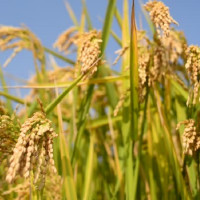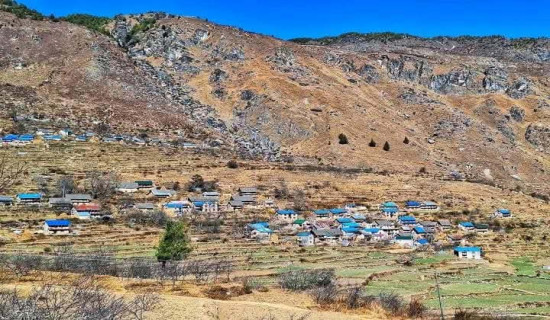- Sunday, 22 December 2024
Women in Makwanpur transforming lives through local entrepreneurship
By Anil Parajuli,Hetauda, Dec. 22: Women in Makwanpur are becoming entrepreneurs by using local resources. Women of Hetauda, Manahari, and Makwanpurgadhi are starting sustainable ventures with locally available materials.
Women are getting engaged in income-generating activities and entrepreneurship by utilsing natural resources like Artemisia, Aloe Vera, turmeric farming on community forest land, woodcraft, and selling locally produced vegetable dishes.
Women, who were previously confined to household chores, are now using local resources to enhance their income and entrepreneurial skills. In Manahari-4, Musedhap, women from the endangered Bankariya and Chepang communities have started producing organic soap using local herbs.
Living a nomadic life in the forest three decades ago, women of the Bankariya community are now producing soaps for washing dishes, clothes, and bathing using Aloe Vera, Artemisia, and Neem leaves.
Santoshi Bankariya, a leader of the Bankariya community, shared that 14 Bankariya and Chepang women established the Bankariya and Chepang Women Soap Factory with an initial investment of Rs. 20,000, funded through monthly savings of Rs. 50 per member.
The women produce small, medium, and large soaps priced between Rs. 20 to Rs. 60, selling them in Hetauda and Kathmandu.
Similarly, women from Makwanpurgadhi-5 have been earning income by cultivating turmeric on one hectare of land. Since 2020, the Bundal Women Agriculture Income Group has been cultivating turmeric on unused community forest land.
“We are a group of 40 women, working together in turns, cultivating turmeric on unused forest land,” said Binita Lamichhane, president of the Bundal Women Agriculture Income Group.
She mentioned that the turmeric is harvested, cleaned, separated, and processed before being sold. The locally produced turmeric and turmeric powder are consumed in the local market, yielding an annual production of 5,000 kilograms.
The women earn an annual income of Rs. 200,000 to Rs. 250,000 through turmeric farming. In Hetauda Sub-Metropolitan City-12, Ghalegaon, women have started producing organic Gundruk (fermented leafy green vegetable).
By registering as the Kanchenjunga Agriculture Cooperative Small Enterprise, women produce Gundruk and Gundruk pickles. With an initial investment of Rs. 100,000 obtained as a loan from the cooperative, 11 women leased 15 katthas of land to cultivate vegetables and launched their business.
Kanchenjunga Agriculture Cooperative chairperson Chinimaya Gurung informed that with support and training from Hetauda Sub-Metropolitan City and Green Foundation Nepal, the women have been producing Gundruk in their spare time.
As the demand for Gundruk has increased, the cooperative now leases 30 katthas of land for vegetable farming. Since its inception in October 2024, the cooperative has been producing over 600 kilograms of Gundruk annually, earning over Rs. 300,000 from Gundruk and maize sales.
The Gundruk produced here, approved for production, distribution, storage, and processing by the Hetauda Food Technology and Quality Control Office, is sold in Hetauda, Kathmandu, Japan, and Australia.
In Hetauda-5, 50 women received nine months of woodcraft training in 2072 B.S. Since 2074 B.S., they have been running the Shramjibi Women Woodcraft Industry, producing handicrafts from locally available wood.
In collaboration with Asmita Nepal, 15 women are currently engaged in making wooden churns, photo frames, bell frames, and souvenirs.
“We have progressed steadily with our acquired skills. Women, who were once confined to household work, are now earning up to Rs. 15,000 per month,” said Bishnu Kumari Rai, chairperson of Shramjibi Women Woodcraft Industry.
She emphasised that women are capable of performing jobs traditionally done by men, and the sale of woodcrafts has been a successful income source.
Rai suggested that ministries, organisations, and cooperatives use locally produced crafts as souvenirs at annual meetings to ensure market access. She urged local governments to prioritise local products by formulating supportive policies.
Meanwhile, Green Foundation Nepal’s central representative Aarati Pathak stressed the need to link women with income-generating activities while ensuring community forest conservation.
She emphasised that economic empowerment is vital for establishing women’s rights, pledging the organisation’s support for producing quality goods and marketing them nationally and internationally.
















